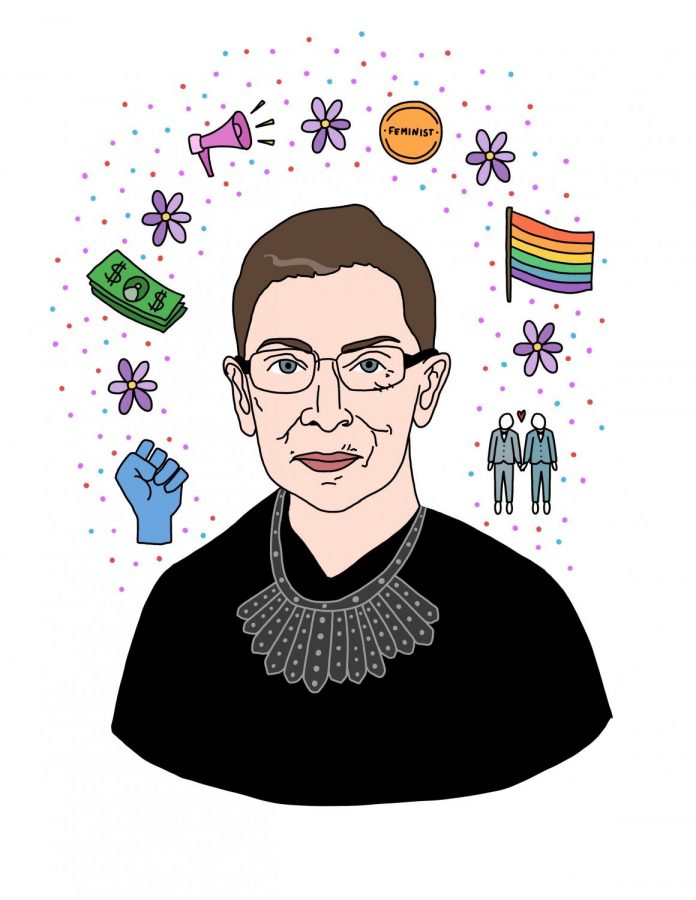Precarious grieving: Mourning the legacy of RBG in uncertain times
September 22, 2020
Ruth Bader Ginsburg died at the age of 87 on Friday. She survived previous bouts of cancer but did not this time. She left millions of vulnerable Americans and a vacant Supreme Court seat in a Republican-dominated government in her wake. We are left attempting to navigate the mourning of a figure whose absence brings chaos and uncertainty in already tumultuous times. One reason her death feels so detrimental is that so many of our systems, ones she so deeply believed in, are failing us all at once, and this void left by her will surely be used to reverse what she had fought so hard for.
In 1956, she was famously one of nine women in her Harvard Law class of hundreds. She transferred to finish her law degree at Columbia University, where she graduated at the top of her class, despite taking care of her husband who had been diagnosed with cancer and her baby daughter.
Later, Ginsburg became the first woman to serve on the Harvard Law Review. Ginsburg was nominated to the Supreme Court in 1993, becoming the second woman to have ever received that honor, when there were six women in the Senate. In her first case as a Supreme Court Justice, she quoted 19th century feminist and abolitionist Sarah Grimke who said, “I ask no favor for my sex. All I ask of our brethren is that they take their feet off our necks.”
Throughout her quarter-century career spent on the Supreme Court, she proved to be a true heroine of women’s legal rights. Early in her career, she laid the groundwork for the Equal Credit Opportunity Act of 1974, which allows for women to apply for bank accounts, credit cards and mortgages without a male co-signer. She fought to require women to serve on juries, arguing that their civic duty should be valued equally with men’s. With fellow attorney Susan Deller Ross, Ginsburg helped pass the Pregnancy Discrimiantion Act of 1978, which deems pregnancy discrimination as unlawful.
Some will mourn and some will fume in light of her death. Both are justified. Ginsburg chose not to retire during the Obama presidency, a time when a liberal successor was a possibility. She made a choice that turned out wrong. She took a risk knowing that she might leave her replacement to be decided by a Republican president.
Because of this decision, much of what she worked to achieve for the entirety of her career is at risk of being erased and regressed by a Republican-dominated Supreme Court. However, it is important to understand that her survival would not have saved us. Room for criticism does not disgrace her legacy and life’s accomplishments. Ginsburg was a heroine of our times, a true feminist pioneer.
It is easy to be angry about the consequences we must reap at the hands of an old woman who made a bad decision — but anger that is misplaced and misshapen is wasted.
Instead, we should direct our anger at the system that allowed the fate of our democracy to be placed on the back of an 87-year-old woman. The most effective action we have is to channel anger into action. May we vote and revolt in her memory.






